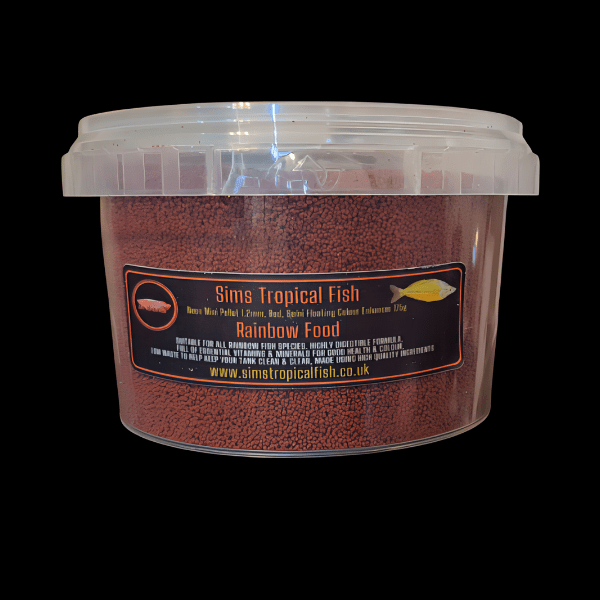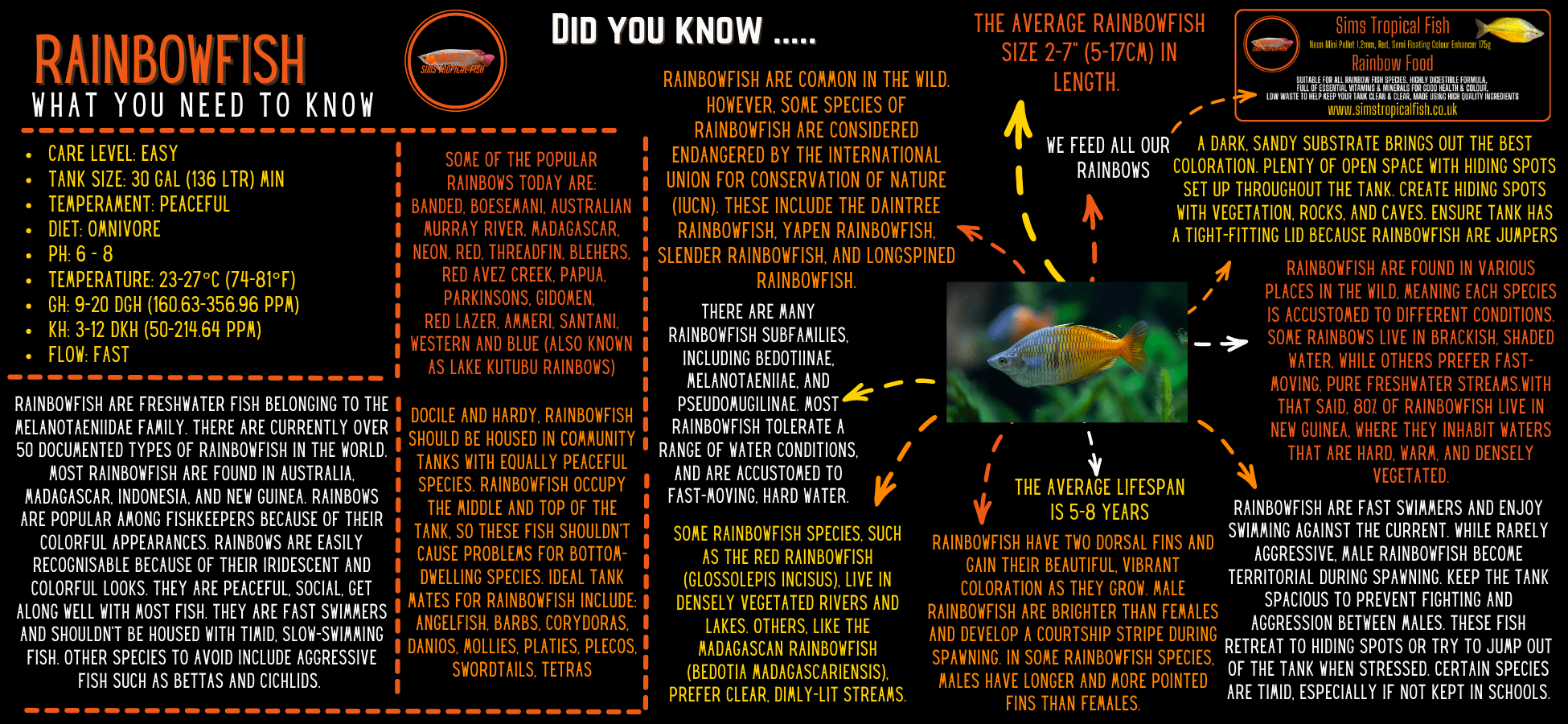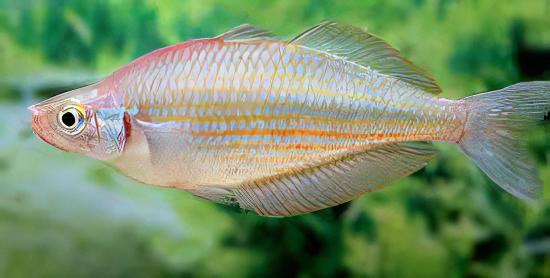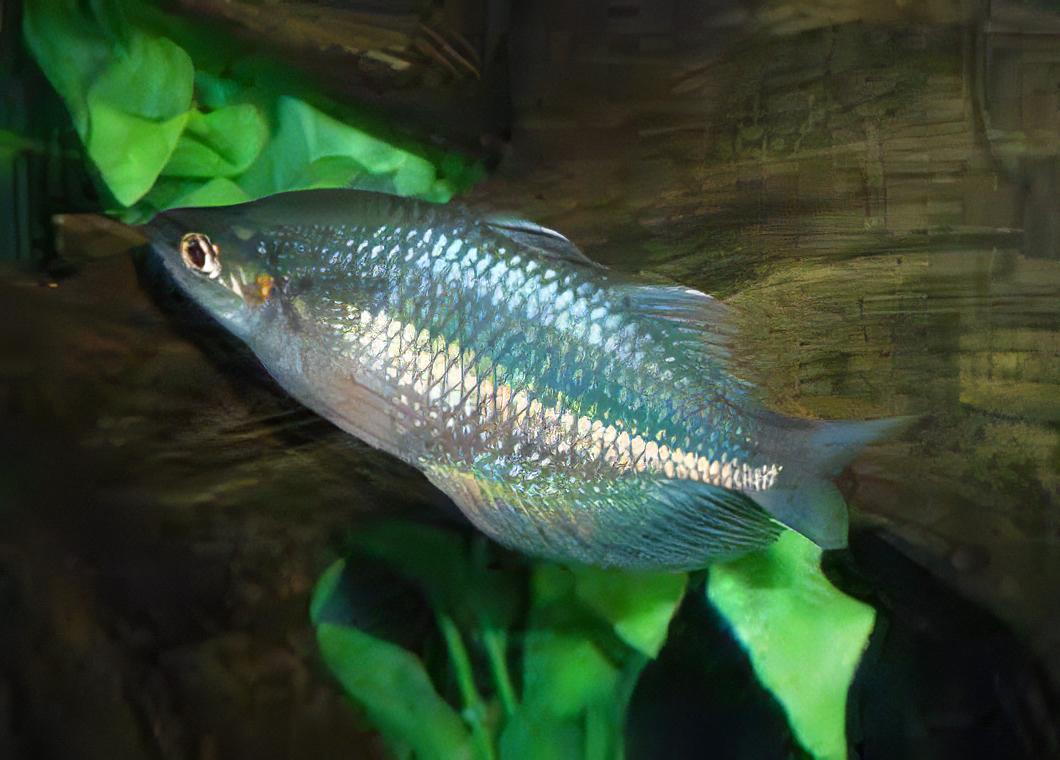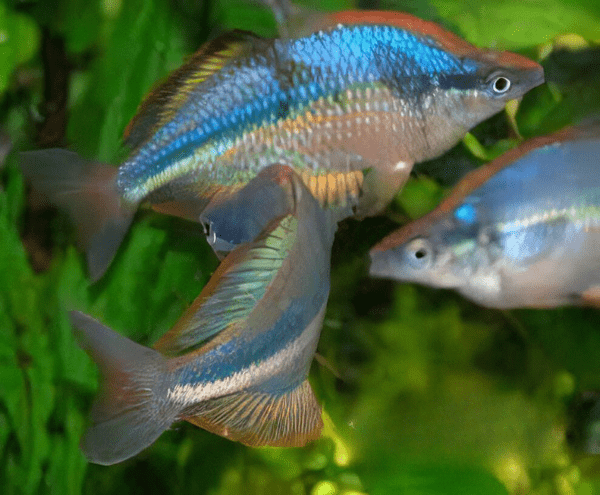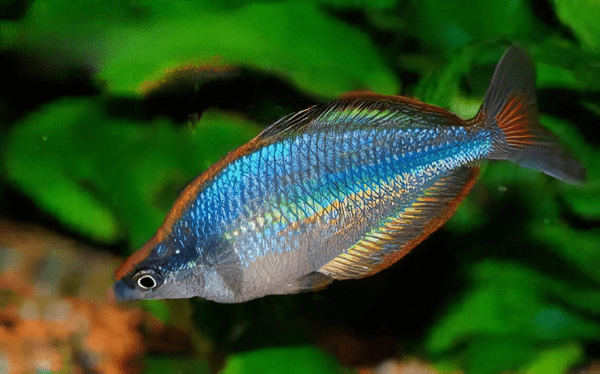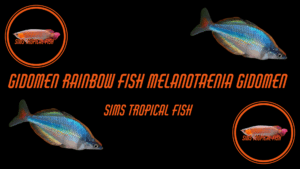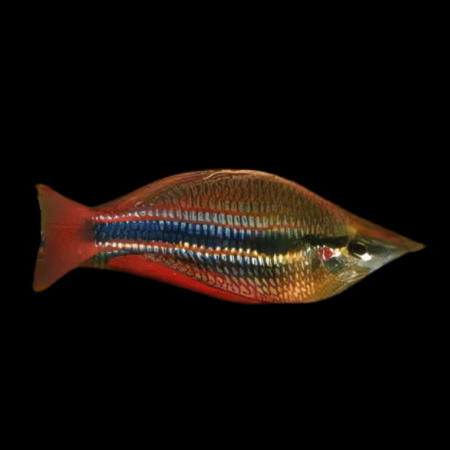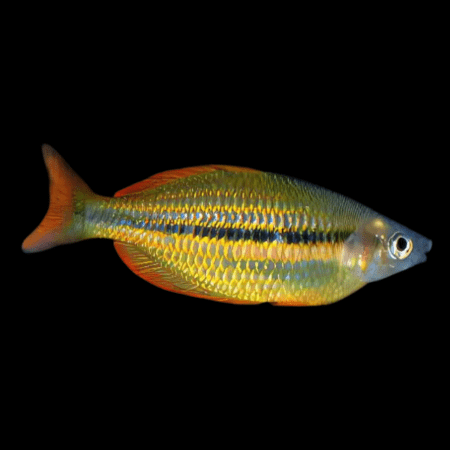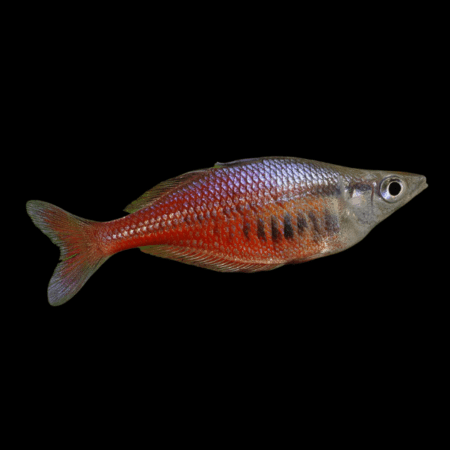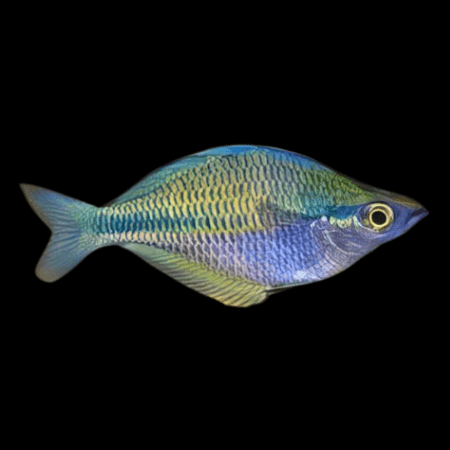Description
Gidomen Rainbow Fish
Overview:
Peaceful, active fish. Rainbowfish are generally hardy and easy to care for. Rainbowfish are truly unique in that the males of most species have a bright iridescent strip running from the top of the mouth up over the ridge of the back and continuing to the dorsal fin. Males frequently “flash” this bright strip on-and-off in absolutely stunning displays. When they flash, it looks like a neon light is being turned on and off. This, combined with the amazing coloration of many species, is something truly special that is not to be missed. Fortunately, these fish display and flash frequently.
Unfortunately, many, if not most, rainbowfish are critically endangered because their habitats are being destroyed by rapid industrial expansion. The pattern has been that as soon as roads are built that allow explorers access to new rainbowfish species, industry follows and the habitats disappear in short order. The habitats of many populations have disappeared, seemingly overnight. There are no effective government controls to mitigate this and the cycle of habitat destruction is not going to stop anytime soon. Gladly, almost all rainbowfish available for sale in the UK are bred and raised in aquariums and not collected from the wild. However, if these captive populations are ever lost, many of these fish will disappear. The more of us who keep these jewels, the higher the probability they won’t completely disappear from the earth.
These fish were discovered in 2010 and have not yet been scientifically named, so, for now, we will go by the collection location of “Gidomen” or “Gidomen Village.”
Setup Considerations:
Most rainbows of the Melanotaenia, Glossolepis, and Chilatherina genre grow to 5″ – 6,” maybe even more on the largest species. Many people successfully keep rainbows in tanks that are around 3 feet long…it can be done. However, these fish are rapid swimmers and do best in a tank that is at least 4 feet long (the length of a standard 55 gallon aquarium). If your tank is smaller, we would recommend sticking to the dwarf species which top out at around 3-3.5″ or less. Alternatively, looking into the closely related Pseudomugil genus (commonly called Blue Eyes) might yield the perfect species for a small aquarium.
Diet: Omnivore
Rainbowfish are easy to feed. They are not picky and will greedily and rapidly eat most standard aquarium foods. However, they can develop problems when fed large, hard food. So, we find it best to feed “soft” foods like flakes, frozen foods, Repashy, and the like. If pellets are fed, they should be very small or softened by being soaked in water before they are fed.

